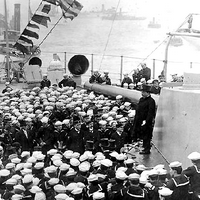Power is the ability to affect others to obtain preferred outcomes, and that can be done through coercion and payment or attraction and persuasion. Generally, people associate coercion with military power resources, but that is too reductive. After all, economic power resources can also be used for coercion. Even in terms of what is considered "normal" economic behavior, the boundaries are not always so clear. As Thomas Schelling has argued, "The difference between a threat and a promise, between coercion and compensation, sometimes depends on where the baseline is located." After all, once compensation becomes an expectation, withholding it for nonperformance can be seen as a punishment -- and the threat to do so as coercion. Similarly, offering inadequate compensation to a starving man in desperate need of resources can be characterized as a bargain freely struck or as coercion. What is called coercion depends in part on the context of a power relationship.
Such contexts are changing in a global information age. Networks are becoming increasingly important, and positioning in social networks can be an important power resource. For example, in a hub-and-spokes network, power derives from being the hub of communications. If you communicate with your other friends through me, that gives me power. And if the points on the rim are not directly connected to each other, their dependence on communication through the hub can be used to shape their agenda. For example, even after independence, communications among France's former African colonies often ran through Paris, increasing France's power to shape their agenda. In other more complex network arrangements, theorists point to the importance of structural holes that prevent direct communication between certain parts of the network. Those who can bridge or exploit these structural holes can use their position as a source of coercive power by controlling communication between others.
This does not mean that the coercive role of military resources is no longer important in a global information age. Coercive diplomacy depends upon the same underlying resources as those that produce competence in kinetic fighting and destruction, but it also depends upon the credibility and cost of the threat. A threat of force can be used to compel or to deter, but the latter is often more credible. Credibility matters, for if a threat is not credible, it is unlikely to produce the desired outcome and could have an impact on the coercing state's reputation. In general, failed threats are costly, not only in terms of the target, but also in terms of third parties observing the outcome.

